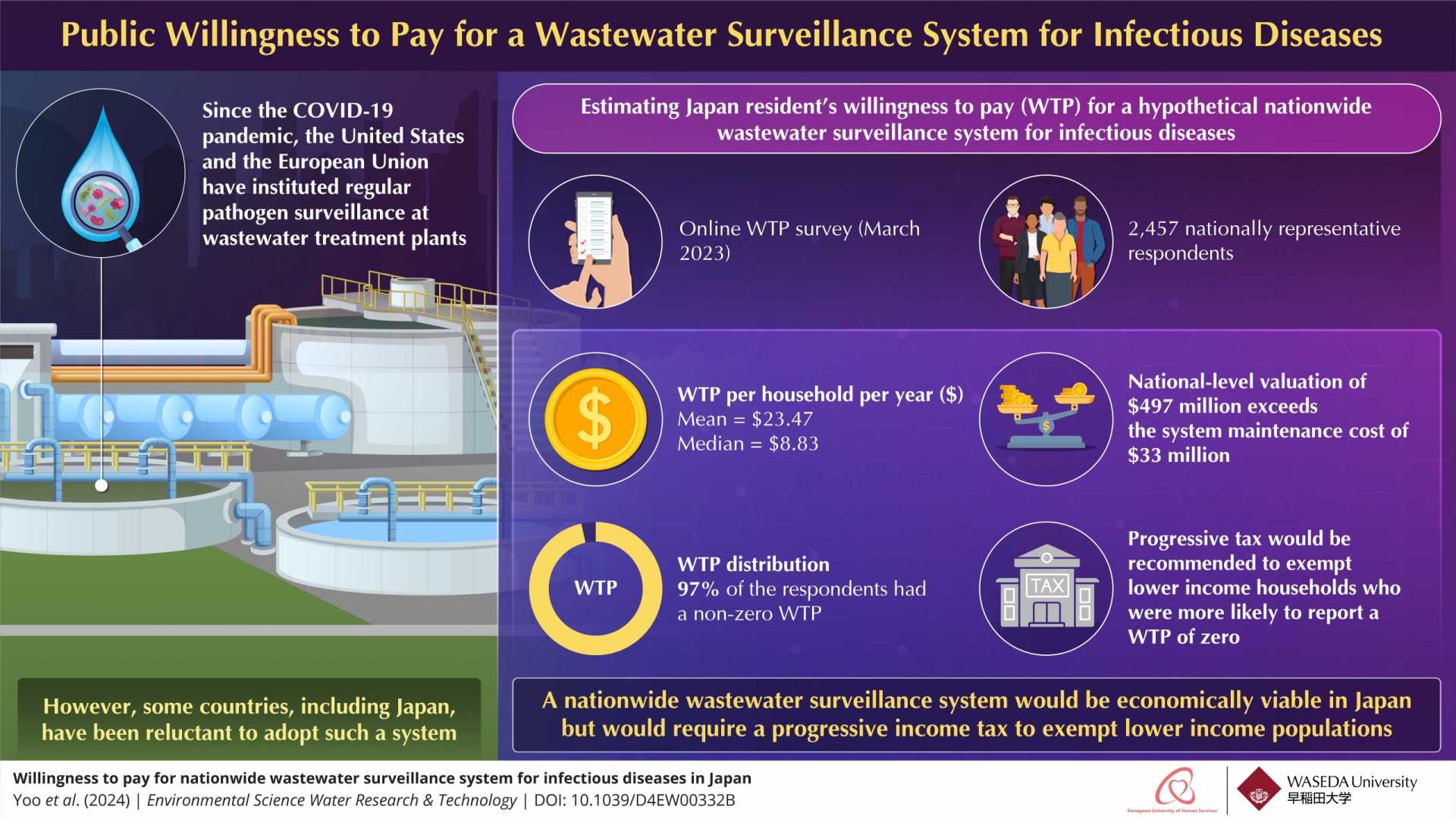Health
New Wastewater System Proposed for Early COVID-19 Detection in Japan

Tokyo, Japan – A group of researchers is advocating for a new system to detect COVID-19 outbreaks early through wastewater surveillance at treatment plants. Led by Professor Byung-Kwang Yoo from Waseda University and Professor Masaaki Kitajima from The University of Tokyo, the team’s findings were published in the journal Science of the Total Environment.
The researchers highlight that early detection and treatment can significantly lower hospitalization and death rates, especially in vulnerable groups like those in long-term care facilities (LTCFs). According to Yoo, their proposed city-level warning system would use wastewater data to trigger clinical screening tests when new COVID-19 cases exceed 90 per million residents daily.
“This system is feasible and could greatly reduce the impact of outbreaks,” Yoo explained, citing a similar successful system in the UK that effectively detected poliovirus.
Financial simulations indicate that wastewater surveillance could yield between $5,000 and $49,000 in benefits for a single LTCF. Nationally, Japan could see a financial benefit between $3.5 and $41 million during four weeks of high infection rates, according to their study.
The researchers believe that public support for wastewater treatment plant systems is growing, referencing earlier studies showing the adult population in Japan is willing to invest $497 million annually to implement such systems against COVID-19 and other diseases.
Compared to traditional clinical surveillance, wastewater analysis is more cost-effective and can test for multiple pathogens simultaneously, enhancing public health responses.
With the resurgence of public health challenges globally, the development of cost-effective solutions like wastewater surveillance is vital. The researchers hope their study will encourage evidence-based policy decisions in Japan and elsewhere.












